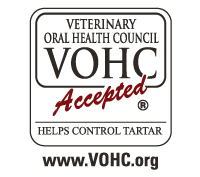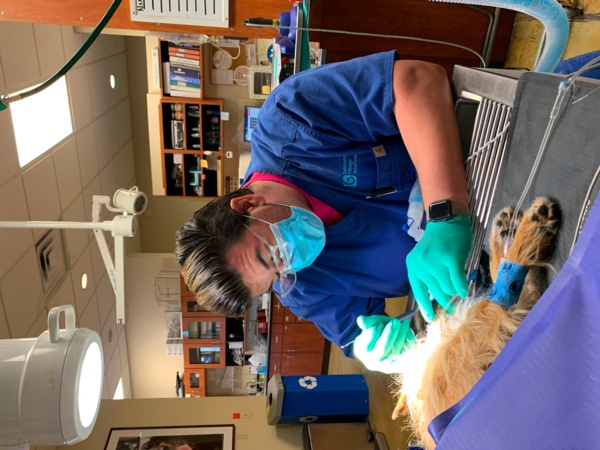Importance of Dental Health in Pets
- Feb 1, 2021
- Tips & Advice, Videos
February is National Pet Dental Health Month!
What can I do at home for my pet's Dental Health?
 Regularly brushing your pet’s teeth is the single most effective thing you can do to keep their teeth healthy between dental cleanings. Daily brushing is best, but it’s not always possible, and brushing a few times a week can still be effective. Most dogs accept brushing, but cats can be a bit more resistant. Patience and training are important! If brushing your pet's teeth simply isn't an option for you, Galloway Village Veterinary also recommends a prescription dental diet or treats and chews approved by the Veterinary Oral Health Council (VOHC).
Regularly brushing your pet’s teeth is the single most effective thing you can do to keep their teeth healthy between dental cleanings. Daily brushing is best, but it’s not always possible, and brushing a few times a week can still be effective. Most dogs accept brushing, but cats can be a bit more resistant. Patience and training are important! If brushing your pet's teeth simply isn't an option for you, Galloway Village Veterinary also recommends a prescription dental diet or treats and chews approved by the Veterinary Oral Health Council (VOHC). Check out our brand new Youtube Channel for an informational video on How to Brush Your Pet's Teeth!
How to Brush Your Dog's Teeth
How to Brush Your Cat's Teeth
When should I bring my pet in for a dental check-up?
Bring your pet in sooner if you notice any of the following:
-
Unusually bad breath
-
Broken or loose teeth
-
Extra teeth or retained baby teeth
-
Teeth that are discolored or covered in tartar
-
Abnormal chewing, drooling or dropping food from the mouth
-
Reduced appetite or refusal to eat
-
Pain in or around the mouth
-
Bleeding from the mouth
-
Swelling in or around the mouth
Causes of pet dental problems:
-
Broken teeth and roots
-
Periodontal disease
-
Abscesses or infected teeth
-
Cysts or tumors in the mouth
-
Misalignment of the teeth and bite
-
Broken or fractured jaw
-
Feline Oral Resorptive Lesions


